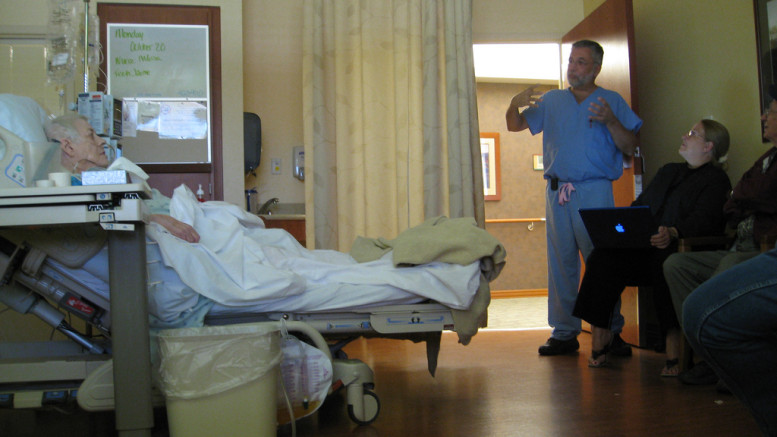A new report published in the Journal of the American Medical Association (JAMA) showed that diabetes drug Victoza (liraglutide) didn’t help heart function in advanced heart failure patients. Heart failure is influenced by an abnormal cardiac metabolism, and glucagon-like peptide 1 (GLP-1) agonists such as liraglutide showed a cardioprotective activity in previous studies even in non-diabetic patients. For six months, the research team led by Dr. Kenneth Margulies, a professor of medicine at the University of Pennsylvania in Philadelphia, examined a total of 300 subjects in a double-blind, placebo-controlled randomized clinical trial. The objective was to test whether treatment with this medication could improve the clinical conditions in patients who were hospitalized for acute heart failure.
Early trials showed that the heart and peripheral muscles of the subjects affected by this condition have insulin resistance. The theory was that liraglutide and other similar diabetes medications could interact with the heart’s GLP-1 receptors improving its function. However, results from the study pointed to the opposite result, as These findings did not support the use of this medication for this purpose. Not only Victoza did not help, but in some instances, its effects were even slightly harmful to the patients treated. As Margulies explained, patients taking this medication reported a slightly higher risk of rehospitalization (41 percent vs. 34 percent) and death (12 percent vs. 11 percent) compared to those taking placebo. Liraglutide also negatively affected their kidney function. No differences were found between diabetic and non-diabetic patients under treatment with either the medicine or the placebo.
This is not the first instance where a new diabetes drug has detrimental effects on the cardiovascular health of diabetic patients. In 2013, a large clinical trial published in the New England Journal of Medicine found that Onglyza (saxagliptin) increased the risk of heart failure by 27 percent. Similarly, the SGLT2-inhibitor Invokana (Canagliflozin) showed a significantly increased risk of myocardial infarction in patients treated with it compared to placebo.
There are several reasons why this study contradicted the results of other similar trials such as the LEADER trial that found that Victoza could lower the risk of cardiovascular accidents. The trial involved both type-2 diabetes patients as well as non-diabetic ones, and was relatively small and short compared to others. Dr. Caroline Apovian, a professor of medicine at Boston University School of Medicine, theorized that in patients suffering from severe heart failure the medication was not able to improve their condition since they were already too sick. Although those terminally ill patients weren’t able to recover, maybe the drug could still have some beneficial effects if started sooner.
Article written by Dr. Claudio Butticè, PharmD.
REFERENCES
- Margulies KB, Hernandez AF, Redfield MM, et al. Effects of Liraglutide on Clinical Stability Among Patients With Advanced Heart Failure and Reduced Ejection Fraction: A Randomized Clinical Trial. JAMA.2016;316(5):500-508. doi:10.1001/jama.2016.10260.
- Benjamin M. Scirica, et al. “Saxagliptin and Cardiovascular Outcomes in Patients with Type 2 Diabetes Mellitus.” N Engl J Med 2013; 369:1317-1326. October 3, 2013. DOI: 10.1056/NEJMoa1307684
- Tucker, Miriam (10 January 2013). “FDA Advisory Panel Supports Diabetes Drug Canagliflozin”. Medscape Family Medicine. (Accessed August 2016).
- Steven P. Marso, et al. Liraglutide and Cardiovascular Outcomes in Type 2 Diabetes N Engl J Med 2016; 375:311-322 July 28, 2016. DOI: 10.1056/NEJMoa1603827
